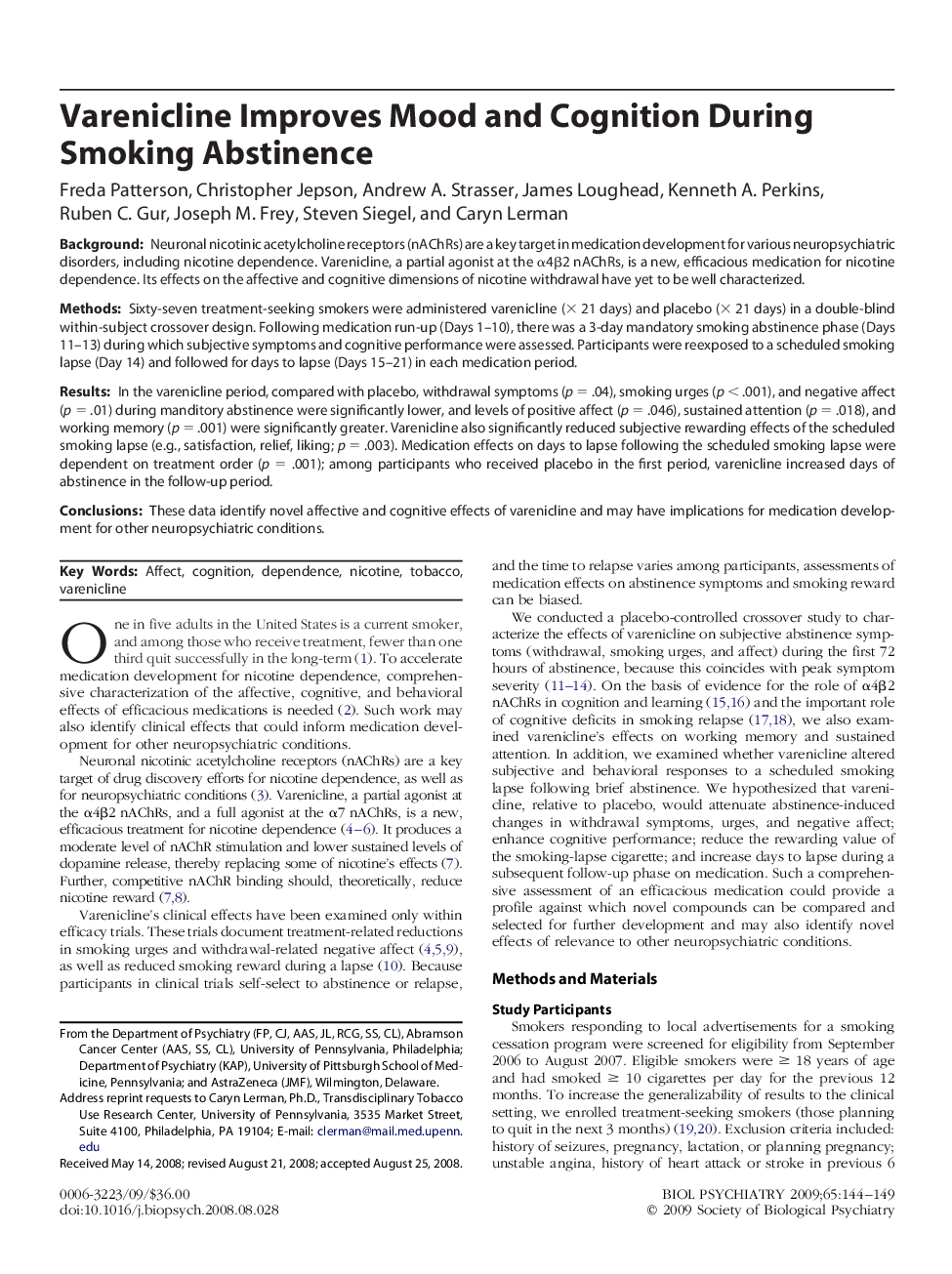| Article ID | Journal | Published Year | Pages | File Type |
|---|---|---|---|---|
| 4180466 | Biological Psychiatry | 2009 | 6 Pages |
BackgroundNeuronal nicotinic acetylcholine receptors (nAChRs) are a key target in medication development for various neuropsychiatric disorders, including nicotine dependence. Varenicline, a partial agonist at the α4β2 nAChRs, is a new, efficacious medication for nicotine dependence. Its effects on the affective and cognitive dimensions of nicotine withdrawal have yet to be well characterized.MethodsSixty-seven treatment-seeking smokers were administered varenicline (× 21 days) and placebo (× 21 days) in a double-blind within-subject crossover design. Following medication run-up (Days 1–10), there was a 3-day mandatory smoking abstinence phase (Days 11–13) during which subjective symptoms and cognitive performance were assessed. Participants were reexposed to a scheduled smoking lapse (Day 14) and followed for days to lapse (Days 15–21) in each medication period.ResultsIn the varenicline period, compared with placebo, withdrawal symptoms (p = .04), smoking urges (p < .001), and negative affect (p = .01) during manditory abstinence were significantly lower, and levels of positive affect (p = .046), sustained attention (p = .018), and working memory (p = .001) were significantly greater. Varenicline also significantly reduced subjective rewarding effects of the scheduled smoking lapse (e.g., satisfaction, relief, liking; p = .003). Medication effects on days to lapse following the scheduled smoking lapse were dependent on treatment order (p = .001); among participants who received placebo in the first period, varenicline increased days of abstinence in the follow-up period.ConclusionsThese data identify novel affective and cognitive effects of varenicline and may have implications for medication development for other neuropsychiatric conditions.
